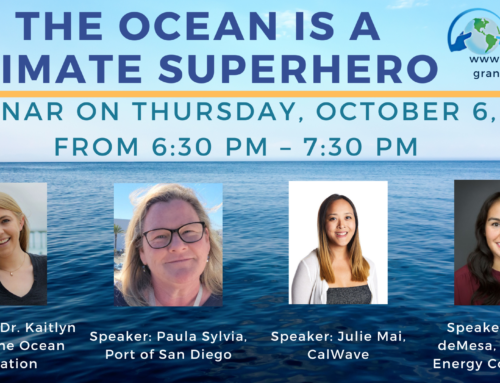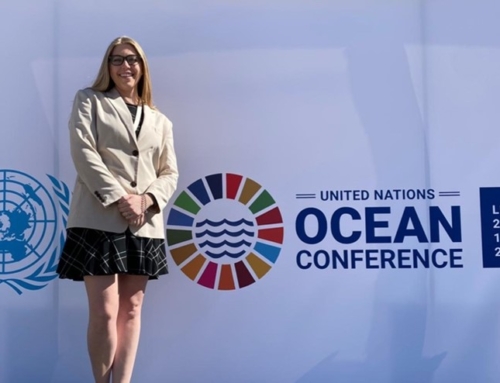Coronavirus & Climate; What Lessons can be Applied to our Work Today & Tomorrow?
By Geri Ingram
A fellow climate activist, Dr. Christian Komor of the Climate Reality Project observed:
“…we need to help our communities “connect the dots”… We have all been waiting for a Climate Pearl Harbor to galvanize public and thus political will. COVID-19 is certainly one, but will people connect the dots? What can we do now? Find ways to help them!”
We at STAY COOL are organizing a series of virtual, family-oriented panel discussions to connect the dots. What lessons can we learn from our current experience coping with a global public health pandemic that will advance climate education and promote conservation and stewardship?
We will convene students, scholars, public health and environmental scientists to explore what these crises have in common. Both are global in reach–no place is free of the virus, and Earth’s climate is felt in every place. Just as climate patterns are interrelated around the world, the virus travels unimpeded across seas and borders. And these climate and health crises were predicted by scientists working with data-driven models and facts.
Like global warming, the pandemic is a threat multiplier; where there is poverty and racism, populations are more likely to have debilitating conditions such as diabetes and pulmonary disease. Such people are at higher risk of infection, and yet they make up the “essential workforce” that is called into action even as we are urged to shelter in place. As the climate worsens around the world, wrecking ecological damage to whole economic and food systems, poor and working people become climate refugees. Where the population is racialized, infirm, aged or homeless, both crises manifest in disproportionate displacement, disease and death.
Coronavirus is intricately and physically linked to air pollution and global warming. Climate change impacts, such as sea level rise, hurricanes and wildfires exacerbate Covid-19 transmissions. Greenhouse gas emissions– as the leading cause of global warming and carbon pollution– is statistically linked to COVID fatalities. This is especially true in dense urban areas which house predominantly Black, Indigenous and peoples of color, and in concentrated agricultural areas. Fighting all types of natural disasters saps especially our poor communities of resources desperately needed for recovery and resilience.
This is a Two-Part Series
Part One – Two global public health crises: Coronavirus and Climate; What has been the local and global response?
Part Two – Food Security Concerns – COVID and Climate Change / Food waste
More information will be posted on our “events” page when these events are scheduled.



